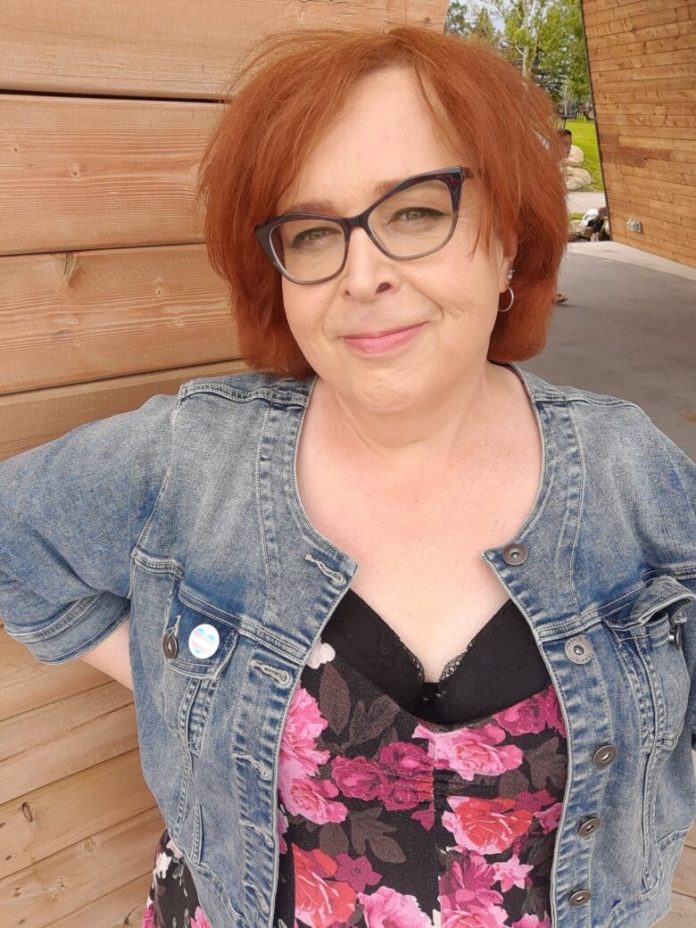Finding a family doctor is a challenge for most Albertans as the number of physicians taking new patients has dropped by half since 2020.
For those who have unique medical needs, this can present an even greater challenge in finding a doctor who understands best practices working with a given community.
This is the situation for many folks in the LGBT community, whether it is gay men needing sexual health care, people managing their viral loads with HIV, or trans people seeking gender-affirming care.
Having a health-care provider who is of the same identity or at least is well educated in the needs of those identities is important to many LGBT people because one does not need to explain many aspects of LGBT life that go unsaid in the hetero world and that in turn can help remove barriers to that health care.
“Penectomies, vaginoplasties, HRT blockers, electrolysis, laser — these are life-saving procedures,” said Kim Fuery, a trans woman who came out in 2021. “But they’re treated like they’re elective or like a trivial.”
She says the longer people delay seeking help for gender dysphoria, the harder toll it takes on those experiencing it. Fighting with a physician who doesn’t understand may not only delay things but also exacerbate trauma.

When she initially came out, she wasn’t sure she would be able to work with her family doctor at the time. She knew her doctor would be supportive but she didn’t know how much she would be able to rely on her for everything she needed after a disagreement over a previous diagnosis.
She began a search elsewhere but had trouble finding someone appropriate until she found a service that links trans people with care providers.
The process requires an enormous amount of effort and self-advocacy in order to get the appropriate treatment. Feury considers herself lucky because she was able to find the care she needs.
“I have a lot of energy for this stuff but it is exhausting to have to do the emotional labour. I’m equipped to do it but it’s a lot. And then I’m reminded some days, what is it like for the people who are not equipped to do this? What is that nightmare like?”
Sexual health for gay men
For gay men, it comes down to having a doctor understand their particular needs around sexual health, which can come with discomfort around disclosure of one’s identity and sexual habits.
Dr. David Gaunt, a family care physician in Calgary, says he has full practice with a large queer patient base. He also identifies as a gay man.

“One of the things that I hear time and time again is ‘Oh man, I wish I had a gay doctor!’
“I think it really comes down to comfort,” he said.
Sexually active gay men often have a greater interaction with the medical system, whether it is for regular STI screening or maintenance of PrEP, which is a pill regimen that prevents one from contracting HIV if taken daily.
Gaunt says having a gay doctor can make it easier for patients to disclose health information and practice-based habits that can affect the type of health care provided, but some of the gay-specific practices aren’t necessarily taught in medical school.
“I’ll find little ways to kind of disclose or at least help my patients feel comfortable sometimes, when I sense that little bit of apprehension, because I know a lot of us grow up feeling like we have this big secret,” he said.
That can leave many patients having to educate their medical doctors on what PrEP is and why they need it.
For those who are interested in PrEP but can’t find a doctor or don’t want to educate their doctor, many are turning to services that offer HIV prevention care remotely.
CBC News also attempted to find a GP in Calgary accepting patients, using Google and other doctor search tools, but came up with none.
A gay doctor would also know there are testing practices for STIs unique to gay men, and the ways they have sex that require additional measures, something that’s not taught in medical school.
Luckily for trans health-care, Gaunt says knowledge and medical education is improving.
“Now there’s actually really great primary practice guidelines that are available for all family doctors to consult where it shouldn’t be as daunting as a process as it is.”








